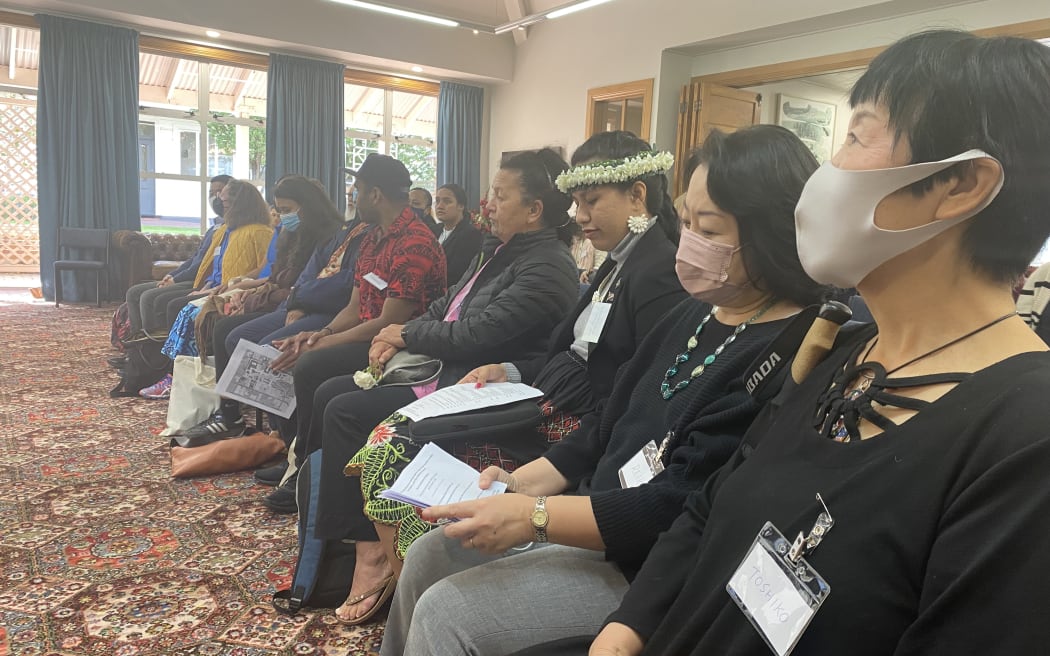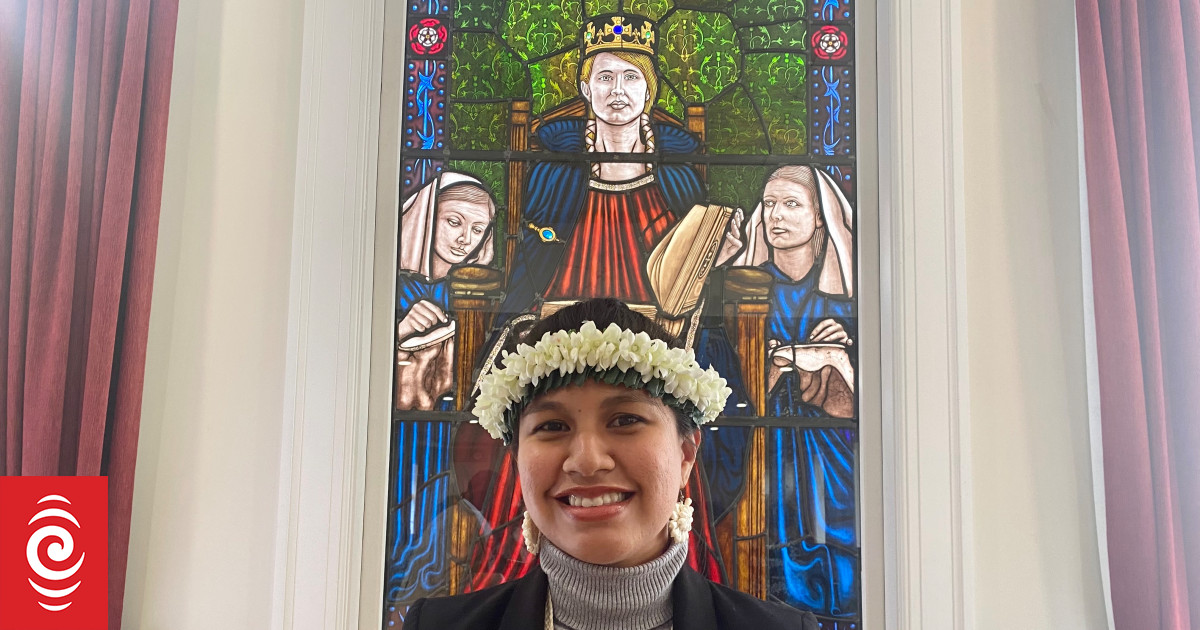Activist Bedi Racule.
Photo: RNZ Pacific/Lydia Lewis
Activists and academics are joining forces to fight plans by Japan to start dumping nuclear waste from the damaged Fukushima Daiichi nuclear power plant into the Pacific Ocean.
It is scheduled to start next year and continue for 30 years.
A statement of solidarity opposing the move was being drafted following the Nuclear Connections Across Oceania conference in Dunedin at the weekend.
At least 800,000 tons of radioactive wastewater was scheduled to be dumped into the Pacific Ocean over 30 years from early next year.
“We understand this is within Japan’s jurisdiction but the ocean is not stagnant and Pacific Islands will be at the forefront of disposal,” Pacific Network on Globalisation Deputy Coordinator Joey Tau said.
Pacific anti-nuclear activists, a Hiroshima bomb survivor and academics voiced their opposition at the event and set up a working group to tackle the issue.

Hiroshima survivor Toshiko Tanaka and her daughter Reiko Tashiro at the Nuclear Connections Across Oceania conference.
Photo: RNZ Pacific/Lydia Lewis
International law expert Duncan Currie told the conference Japan had not considered the impacts or conducted baseline studies, which he said was “completely unacceptable”.
He said modelling suggested the waste would travel to Korea, China, and then the Federated States of Micronesia and Palau.
“Japan has other options like storing the waste on land which is costly, but countries need to take a stand now. It is an open and shut case,” Curry said.
“Very simply, any country, any Pacific country, Korea, China could take a case against Japan in the international tribunal of Law of the Sea demanding an injunction or what are called provisional measures in international law be exercised.”
Toshiko Tanaka, an 84-year-old survivor of the atomic bomb attack on Hiroshima in 1945, urged the world to remember the suffering nuclear weapons cause.
Marshallese ‘still suffering’ from nuclear testing
The newly-elected Vanuatu Climate Minister Ralph Regenvanu said Vanuatu was against the move as the country was a member of the Pacific Islands Forum which had expressed its opposition to the dumping.
Fiji-based Bedi Racule said hearing about Japan’s plans and the potential impacts had been re-traumatising as Marshall Islands residents were still facing the impacts of nuclear testing by the United States.
“We know a lot of people that have passed away from cancer,” Racule said.
She believed it was New Zealand that had a duty to take action, instead of leaving it up to small island nations.
“I really feel for my nations’ leaders, they’re taking on so much, they have so much on their shoulders and to be constantly fighting for survival means we don’t have time to focus on our people and develop our people.
“So I think a nation like New Zealand should take the lead on Fukushima waste dumping issue,” she said.
Time and time again it was small Pacific Islands taking on these battles, Tau said.
He called on New Zealand to support this call, if it saw itself as part of “this blue continent”.


